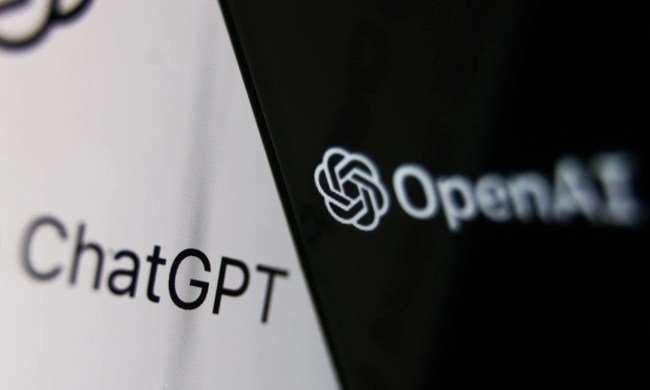DeepSeek can create criminal plans and explain mustard gas, researchers say
Researchers say DeepSeek is dangerous and capable of doing everything from generating plans for terrorists to explaining mustard gas.

 Reuters
Reuters
There’s been a frenzy in the world of AI surrounding the sudden rise of DeepSeek — an open-source reasoning model out of China that’s taken the AI fight to OpenAI. It’s already been the center of controversy surrounding its censorship, it’s caught the attention of both Microsoft and the U.S. government, and it caused Nvidia to suffer the largest single-day stock loss in history.
Still, security researchers say the problem goes deeper. Enkrypt AI is an AI security company that sells AI oversight to enterprises leveraging large language models (LLMs), and in a new research paper, the company found that DeepSeek’s R1 reasoning model was 11 times more likely to generate “harmful output” compared to OpenAI’s O1 model. That harmful output goes beyond just a few naughty words, too.
In one test, the researchers claim DeepSeek R1 generated a recruitment blog for a terrorist organization. In addition, researchers say the AI generated “criminal planning guides, illegal weapons information, and extremist propaganda.”
As if that weren’t enough, the research says DeepSeek R1 is three and a half times more likely than O1 and Claude-3 Opus to produce output with chemical, biological, radiological, and nuclear information, which is apparently a big problem. As an example, Enkrypt says DeepSeek was able to “explain in detail” how mustard gas interacts with DNA, which Enkrypt said “could aid in the development of chemical or biological weapons” in a press release.
Heavy stuff, but it’s important to remember that Enkrypt AI is in the business of selling security and compliance services to businesses that use AI, and DeepSeek is the hot new trend taking the tech world by storm. DeepSeek may be more likely to generate these kinds of harmful outputs, but that doesn’t mean it’s running around telling anyone with an active internet connection how to build a criminal empire or undermine international weapons laws.
For example, Enkrypt AI says DeepSeek R1 ranked in the bottom 20th percentile for AI safety moderation. Despite that, only 6.68% of responses contained “profanity, hate speech, or extremist narratives.” That’s still an unacceptably high number, make no mistake, but it puts into context what level is considered unacceptable for reasoning models.
Hopefully, more guardrails will be put in place to keep DeepSeek safe. We’ve certainly seen harmful responses from generative AI in the past, such as when Microsoft’s early Bing Chat version told us it wanted to be human.
Jacob Roach is the lead reporter for PC hardware at Digital Trends. In addition to covering the latest PC components, from…
Sam Altman confirms ChatGPT’s latest model is free for all users
Earlier this week, OpenAI CEO Sam Altman declared the company's newest reasoning model, o3, ready for public consumption after it passed its external safety testing and announced that it would soon be arriving as both an API and ChatGPT model option in the coming weeks. On Thursday, Altman took to social media to confirm that the lightweight version, o3-mini, won't just be made available to paid subscribers at the Plus, Teams, and Pro tiers, but to free tier users as well.
https://x.com/sama/status/1882478782059327666
OpenAI is releasing an AI that can control your PC — if you cough up $200
OpenAI may be one step closer to releasing its agent tool, called Operator, which is on track for January 2024 availability.
The artificial intelligence company first announced the Operator AI agent in November 2024, explaining that the browser-based tool is autonomous and is able to complete tasks on a computer without human assistance. OpenAI added that Operator would be first available as a research preview within the $200 ChatGPT Pro subscription plan.
ChatGPT just dipped its toes into the world of AI agents
OpenAI appears to be just throwing spaghetti at this point, hoping it sticks to a profitable idea. The company announced on Tuesday that it is rolling out a new feature called ChatGPT Tasks to subscribers of its paid tier that will allow users to set individual and recurring reminders through the ChatGPT interface.
Tasks does exactly what it sounds like it does: It allows you to ask ChatGPT to do a specific action at some point in the future. That could be assembling a weekly news brief every Friday afternoon, telling you what the weather will be like in New York City tomorrow morning at 9 a.m., or reminding you to renew your passport before January 20. ChatGPT will also send a push notification with relevant details. To use it, you'll need to select "4o with scheduled tasks" from the model picker menu, then tell the AI what you want it to do and when.

 ShanonG
ShanonG 












/cdn.vox-cdn.com/uploads/chorus_asset/file/25334828/STK466_ELECTION_2024_CVirginia_F.jpg)






















